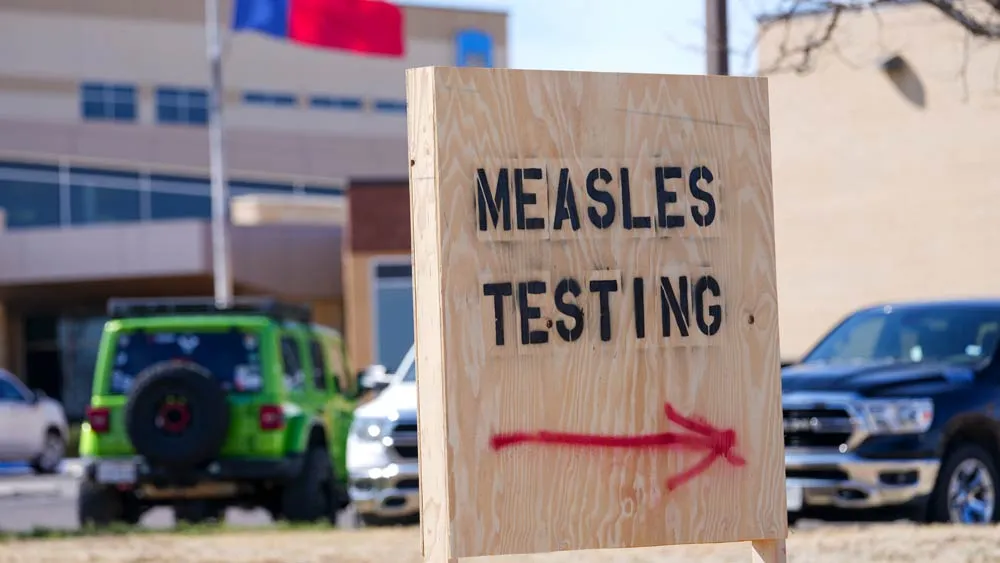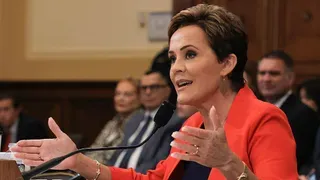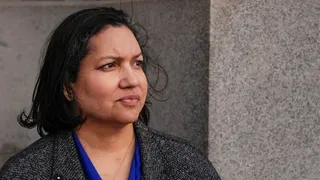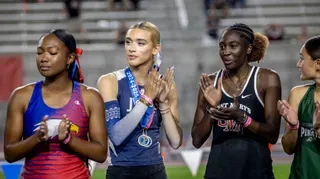November 21, 2011
Homo for the Holidays: How Queer Families Celebrate
Bryen Dunn READ TIME: 9 MIN.
As the holiday season approach, it often means times of family gatherings. It's also a time when one might see extended family members whom they haven't seen since the last holiday season. Often this will involve some sort of travel as well, sometimes just across town, while others will venture out of the country. For some this is a joyous occasion to anticipate, while others find it quite stressful.
The LGBT community has embraced the concept of marriage over the past several years, legally being allowed to wed in Canada and a half-dozen other countries, as well as a few progressive states here in the USA. It's also becoming more prevalent that these couples are choosing to raise children in increasing numbers. This is in addition to the LGBT individuals with children who are living in common law relationships or are single parents.
Today there are many variations of the family unit, yet stereotypically it is still too often seen in mainstream culture as a household with a mother and father figure. So what happens if you are part of a different family composition, and feel the pressure to attend extended familial holiday festivities, sometimes under not so favorable circumstances?
EDGE spoke with a few individuals who reflected on what it's like being part of a queer family unit in general, and specifically during holiday seasons.
Unconventional Family Get Together
Flavia is a single lesbian mother raising her teenage son, who was conceived via a close friend donor of her and her partner at the time. Although she has since separated, her son continues to have a healthy relationship with all three individuals. Despite the fact that they are all from different countries, cultures and backgrounds, they have not had any problems travelling abroad. "I have written documentation that states that the adult accompanying him is authorized to do so," Flavia noted.
When her son was first born, she started a support group for gay parents that met twice a month for about a year. Since then, she has moved to different states, where she has "found that I can always find another queer family without trying too hard. I have tried to choose the areas I live in carefully because there are challenges, and if they are not educated, open minded, or kind, there can be serious consequences to being out as a family," she added. "From the time we decided to have a baby we also decided that we were going to show by example that our family was nothing to be ashamed of, and whoever had a problem with it was not welcome at our family gatherings."
Stacy and her partner Donna were united by a civil union ceremony in New Jersey, and are raising two children together. "I grew up in Maine where my family still resides, and Donna's family lives in Trinidad," Stacy said. "We have developed our own extended family here in New Jersey with other families whose immediate family is not local. We are blessed with very open and accepting families, although it took a while to get to this space. It was so nice to be so warmly embraced by Donna's family when we spent Christmas there one year."
It's important that as parents you make sure you're comfortable with your orientation and don't try to hide who you are, she advised. "We are just as capable parents as our straight peers, and our two children are excellent examples of happy, well-adjusted children," she added.
"We are not here to necessarily crusade on behalf of LGBT families, just simply living our lives authentically, not outrageously," Donna added.
Their teenage son noted that "None of my peers or extended family network really care that my parents are gay, and I try to make people stop talking about how it's wrong, so they can listen to what makes it right. I can also speak to my guidance counselor at school if I run into tough situations."
Judy, executive director at Our Family Coalition, is raising two children with her partner. "Our families of origin are both completely accepting of our family, and we tend to stay close to home during the holidays as both our parents are in the Bay Area as well," she said. "We all get together on one night of Hannukah and exchange gifts, eat lots of potato pancakes, and have a great time."
The biggest issue for her has been trying to make sure that their kids schools are "LGBT inclusive. I feel it's important for kids to have opportunities to hang out with other kids of LGBT parents," she said. "Don't be shy to talk to professionals about your family."
A report was released this past October during a Washington conference entitled, "All Children Matter: How Legal and Social Inequalities Hurt LGBT Families." The reports aims to bring light to the fact that non-traditional family units are not receiving the same legal benefits and safety-mechanisms as their traditional counterparts are. An earlier study found that children raised by lesbian couples were rated significantly higher in social, academic, and total competence, and significantly lower in social problems, rule-breaking, aggressiveness, and externalizing problem behavior.
Gay Dads
Paul, a member of Gay Fathers of Toronto, a local support group, is an example that gay parents long predate gay marriage, usually as a result of a closeted heterosexual relationship. He himself is the father of three and grandfather to five. He had always wanted children for as long as he could remember.
"Our group is made up of mostly men who became fathers through relationships -- usually marriage -- with the mothers of their children," he said. "Most of the men eventually separate or divorce, and quite a few have gone on to marry male partners who form a new family unit."
Rich is co-president of the Pop Luck Club in Los Angeles, an organization for gay dads, prospective dads, and their families. He and his partner are raising two children. He presents a contrast to the lesbians cited above, in terms of the two men's biological families.
"We are completely comfortable with being a family headed by gay fathers, yet the holidays do present some problems because not all members of my extended family are comfortable with the idea of my gay family," he said. "Over the years, I have conditioned myself to make alternative plans for my immediate family on the big holidays like Thanksgiving and Christmas. Maybe one day my family members will come to realize that they are losing out by shying away from us on the holidays.
"My daughter just asked me if we were going to host another Christmas Eve party with our friends again," he added "Last year, while having a moment of feeling as though we might be living on the island of misfit toys for the holidays, my partner and I put together plans for a Christmas Eve party. The surprising thing was that every gay and lesbian family that we invited showed up at our door. Since adopting our two children, we've been on three R Family Vacations, and we love it. Customs officials seem to be getting better about understanding why two men are travelling with two children. If they don't get it, I don't mind spelling it out for them."
'Nontraditional' Families Far Outnumber 'Traditional' Ones
In the United States there are a growing number of children being raised by LGBT parents, often without all the legal protections afforded to traditional heterosexual mom-and-dad households. The U.S. census does not track the number of children being raised by this segment of the population, but independent surveys have put this number as high as two million spread out over 96 percent of the nation's counties. It is also estimated that less than a quarter of all households fall into the traditional family category.
Mark believes that young people who have LGBTQ parents are the most convincing and powerful advocates for family equality and social justice. He dedicates much of his time writing blogs, protesting, and volunteering at community organizations, such as Colage, an organization for people who one or both parents gay, and Our Family Coalition. He says he and his partner live their lives openly and without shame. "My chosen family is very queer and includes my partner of seven years, and our small network of close friends," he said.
Mark's father, also gay, was forced to come out under unfortunate circumstances three years ago and is still struggling with his sexuality. "I absolutely hate the holidays because of the tension created not only by my mom and dad's divorce, but also because of general family drama and stress," Mark said. "Another reason why it is challenging to leave the Bay Area to go home for the holidays is that, as a gender non-conforming person, I get a lot of stares and even threats of violence in places like rural Pennsylvania where I am from." He has aspirations of one day being a parent himself, which he says "could mean co-parenting among many other possible configurations."
Brent and his partner were there for their adopted daughter's birth, and she went home with them at three days old. "I always knew I wanted to be a parent, but my partner was not so sure," he said. "We were together for 16 years before we adopted. Our immediate family, parents and siblings, are very supportive for the most part. We made sure we visited and spent time with all of them right from the beginning. This was a big help as they quickly fell in love with our daughter, and are among our family's strongest advocates. At large family gatherings, there are definitely more distant family members who still have questions, and are dealing with their own homophobia."
Brent believes that some of the acceptance level was achieved through social media. "It has helped immensely, as family near and far can see glimpses into our daily life with pictures, anecdotes about dirty diapers, making dinner, and all the things that families deal with. I think Facebook may actually have broken down more barriers and stereotypes, and built bridges that we could never have done in such a short amount of time."
He expected the most awkward moments to come in places like airports while boarding a plane (especially since his daughter is of another ethnic group). The most inappropriate, invasive questions have come from strangers. As for his own family, "My mother-in-law and her boyfriend joined us for a week-long event my agency provides annually for LGBT families, and she said she felt that aha moment when she realized we're just another family."
Coming Out Twice
"We are on very superficial speaking terms right now, but I am trying to be patient and give them some space/time to come around", he states. With regard to family gatherings, Daniel's parents requested he not disclose his sexual orientation to relatives when he first came out as a lesbian five years ago, because there was no reason for them to know. "I respected their request, but now with me actively transitioning hormonally, if I don't share that with the family it will change whether or not I can visit them without a lot of effort to hide who I really am."
His parents often ignore any discussions around his transitioning. "They have just quietly stopped including me in things, like a festival I've been playing fiddle music at for years," he said.
Daniel fears he may lose his annual father bonding event coming up in January. "It is the one time of year I am often on a vacation with my dad, as we go to Alaska for the Great Alaska Beer and Barleywine Festival. I have a feeling that me coming out as starting to transition to male maybe putting an end to that tradition, after three years."
Denise, 64, has been married to her female spouse for over 40 years and fathered three children, with two grandchildren. Denise has also been living as a post-op trans-woman for almost 15 years. "I'm still married to my spouse, thanks to Canadian law that did not require me to get a divorce prior to change", she explained. She continues to live in rural Nova Scotia and says that her family and close friends support her.
Denise knew she wanted to live as a female since she was four years old but was aware she could only have kids as a male. "I told my spouse my position and discussed options three months into our marriage," he recalled. "She agreed to stay together and have children, then see how things went. I held off transitioning until our children were older, with the youngest being twelve at the time."
As for holiday season, "My daughters and their families live apart from us so any time spent together is very special to us," she said. "We are on great terms with both daughters and communication is never an issue, as we typically leave the decision making to them and I have never been rejected or ignored. All close family is also responsive and friendly to my change in gender as well."
She offers this word of advice for others in similar situations. "Be strong, be vigilant, and be open regarding your status. Do not confuse your child's needs and values with your own identity issues."
Being part of a queer family unit can often be challenging, but more importantly it can be rewarding.






